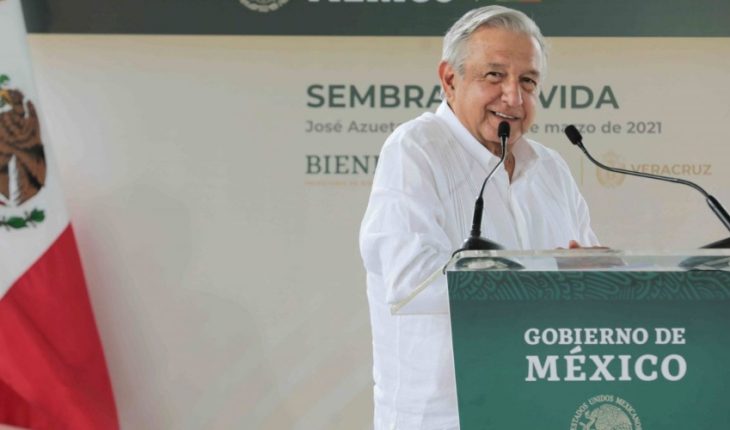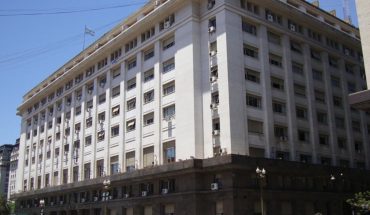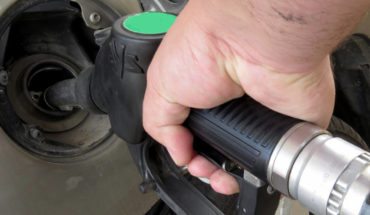President Andrés Manuel López Obrador will have a conversation with U.S. Vice President Kamala Harris on Friday to address the issue of migration. The proposal he has been repeating for weeks is to export the “Sowing Life” model to the countries of the Northern Triangle of Central America. According to López Obrador’s plan, a million 200 thousand jobs could be created with the planting of 3 billion trees. The idea, however, is not new. In 2019 the representative announced an aid plan for Honduras and El Salvador that was to generate 40,000 jobs between “Sowing Life” and “Young People Building the Future”. Two years later, the enrollees reach 15 thousand 800 between the two countries, as confirmed in interview Laura Elena Carrillo Cubillas, director of the Mexican Agency for Cooperation (Amexcid). Half of the expected has not been reached.
The president’s proposal is to extend Washington-funded “Sowing Life” with a commitment: within three years, those who have cultivated their land within the program could access a work visa that, within another three years, would allow access to dual nationality. The latter addition, that of regularizing in the US whoever is included in the programmes, should be the great attraction to achieve more registrations.
You may be interested: Supports from Mexico to Central America reach 6% of the planned more than a year after their announcement
The idea is to provide direct financial support to young people ($180) and farmers ($250) to support them with training and, instead of going to the United States, to decide to stay in their countries.
According to Carrillo Cubillas there are 15 thousand 800 people registered in Honduras and El Salvador, without delving into how many of them are already receiving the help. In February, which is animal’s last data outage, there were just over 8,000 enrollees and 2,000,739 who were already receiving financial support.
The only way to size the scope of “Sowing Life” is through cultivated land. According to Amexcid data, there are 749 hectares in El Salvador (an area similar to 125 times the Azteca stadium) and 302 in Honduras (50 times the Azteca stadium).
The measure being used, however, is apple, which is somewhat smaller than the hectare. Thus, there are 69 apples grown in El Salvador and 431 in Honduras. According to Amexcid’s calculations, the average is that each inscribed in “Sowing Life” has an apple of land. This would lead to some 1,500 beneficiaries of the planting program in the two Central American countries that are already cultivating their land and another 3,500 still fulfilling the selection process.
A relevant fact that Amexcid is reluctant to transparent is the name of the 325 companies that are collaborating with the program in Honduras and El Salvador. Animal Politics requested the list but the social communication cabinet referred him to make a request for transparency.
The expectations launched in 2019, when López Obrador promised 20,000 jobs and an investment of $30 million for each Central American country, have also not been met in the economic sphere. Today the expenditure made does not reach 2 million in total and the rest of the money remains in an account of the Welfare Bank, the one responsible for safeguarding the funds.
Funds are currently available. However, the director of Amexcid told Animal Politics that Guatemala is expected to sign an agreement later this month, therefore the number of potential beneficiaries would be expanded without this implying more money. In July 2020, the federal government extinguished 108 trusts, including the Mexico Fund, which was responsible for maintaining funds for cooperation. $60 million was saved in Banco del Bienestar, but Guatemala was left to work. In documents in which Amexcid requested the Ministry of Finance to rethink the end of the Mexico Fund, the institution leading Carrillo Cubillas recognized that the termination of the trust compromised the expansion to Guatemala.
“Although the Mexico Fund disappeared, resources are dispersing. From now on, we cannot know how it will be done,” acknowledged the director of Amexcid, who felt that, if more money was needed, it could be received directly. In addition, your bet is that the US or the European Union can enter the financing.
The delay, because of the pandemic
Amexcid’s managers point to the pandemic to explain the delays. Also in the legal procedures that had to be signed to ensure that the funds reached the beneficiaries directly without going through central American governments. Secure Carrillo Cubilthe arrival of COVID-19 caused Mexican officials deployed in Honduras and El Salvador to return due to confinement measures. However, it believed that in the second half of the year processes would be accelerated and the figures promised in 2019 would be reached.
Carrillo Cubillas says they are receiving requests for information in both beneficiary countries and in Europe or the US.
Both López Obrador and the chancellor, Marcelo Ebrard, claim to share with Washington the view that migration is only slowed down by focusing on the causes that cause it. Today the president will try to convince us that this project started in 2019 is the recipe to stem the migration boom in recent months.
What we do at Animal Politics requires professional journalists, teamwork, dialogue with readers and something very important: independence. You can help us keep going. Be part of the team.
Subscribe to Political Animal, receive benefits and support free journalism #YoSoyAnimal.





